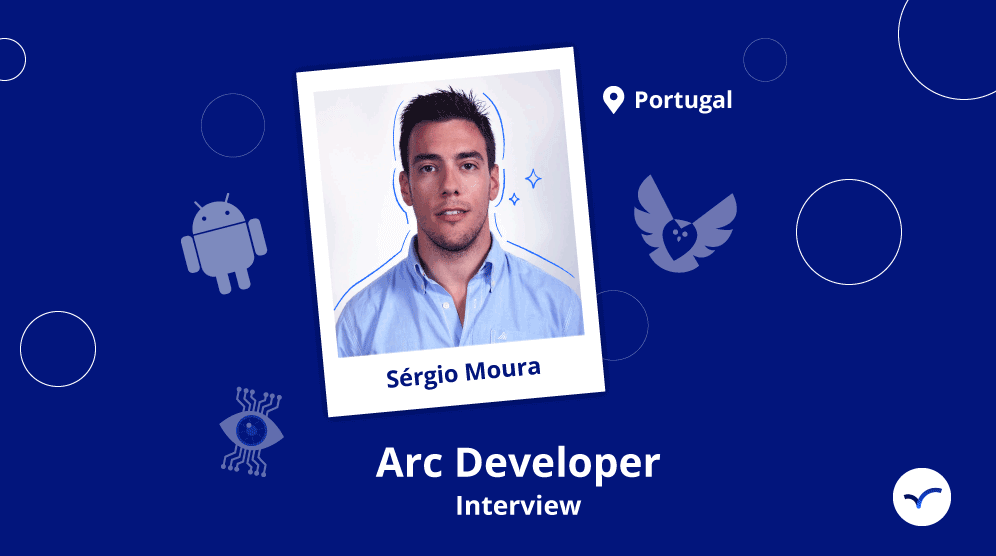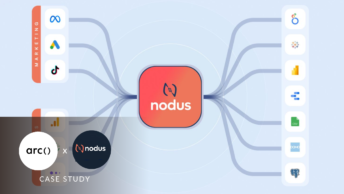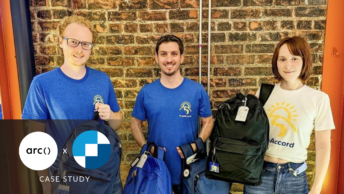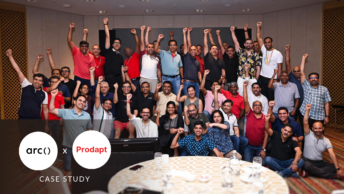In this Arc Developer interview, we chat with Sérgio Moura about why working remotely increases your efficiency, how a project manager can make or break a project, and how being a developer has made him a little part of a football club’s history.
Looking for top talent fast? See how Arc can help you:
⚡️ Find developers, designers, marketers, and more
⚡️ Freelance or full-time remote + fully vetted
⚡️ Save up to 80% with global hires
Hire top talent with Arc risk-free →
How did you start your career?
I started almost 10 years ago, working as a researcher on an AI project. It used to be my dream job, but soon I realized that it was a nightmare. So after finishing my master’s thesis, I switched to software development.
I started as an iOS developer, switched to the web, and finally, about 8 years ago, started Android development. This was probably not a common decision, because I know many more developers that started as Android devs and switched to iOS.
What was your main motivation to go from on-site to remote?
Since I started working, I wanted to try a remote job, but there was always a problem — lack of remote working experience, so I was always rejected.
I wanted to try remote work for two main reasons:
- I wanted to know how good the flexibility of working when and where I wanted could be
- I’m a night owl, and I’m more efficient working at night (which is impossible if you’re in an office from 9 to 5)
So, four years ago, I received a very good job offer. After I accepted, the new company gave me the contract to sign. This contract had lots of terms that I thought were both inadequate and excessive, so I resigned before starting.
At that moment, I had to start looking for a new job. A friend told me that his company was looking for an Android dev, and they were fully remote, so I accepted the challenge.
Read More: Asynchronous vs Synchronous Communication
How is working remotely different from working on-site?
It couldn’t be more different — and almost everything for the better.
The first thing I noted was the efficiency. I needed less time to do more work, compared to working on-site. When you are in an office for an eight-hour day, you get distracted by other colleagues, there’s noise, you take more breaks, and you end up actually working four to five hours. When you’re home, you do the same work in less than those eight hours, and you feel that you have to work more to fulfill the remaining time. So you end up doing more, in less time.
The second part is working from everywhere. I could work with my pajamas on, but I could also work from a terrace in front of the sea, or in a coworking space with some friends.
But not everything is perfect, and I encountered some problems during these years. Communication is not always easy. All team members have to be aware of different time zones, which makes communication asynchronous, and it’s not easy to overlap all members for a meeting (for example).
Also related to this, some companies are trying to change and accept remote workers, but forget that asynchronous communication is even more important and essential to allow remote work.
To finish the worst part: defining the limits of your work. It’s very easy to overwork or underwork. It’s important to define working hours (even if it’s flexible and you change from one day to another) and define your daily goals.
Read More: How & Why Hiring Remote Developers Builds Strong and Diverse Teams
What soft skills do you have that make you a good fit as a remote developer?
I like to work in hours not compatible with an on-site job, but this doesn’t make me a good fit for a remote job — it makes remote work a good fit for me.
Also being available (I’m usually available from 9am to 11pm for any urgent issue) is very important in an asynchronous and remote team.
How do you manage projects in a remote team?
I never had a manager job in a remote team and, to be honest, that’s the hardest job in a remote team. This is because you need to be available for many more hours than on an on-site job, sync different time zones to schedule meetings, etc. It’s the glue that keeps the team together.
I worked in teams where you feel that the project manager is keeping the team together, smoothing the communication and the working flow. That said, I have also worked in teams where you can feel the impact of the lack of a good project manager: it stops the team from being productive.
How did you evolve from a junior developer to a team lead?
It was very fast. In my early days as a developer, I worked with startups, so I learned a lot, had to do lots of very different tasks, and worked on very different projects (and collaborate with different people). This gave me experience and knowledge about different areas.
One time I read that if you only know about one thing, you don’t know anything — and I totally agree.
Working on an app used by millions of people to shop, a football team app that allows you to access the stadium, or a short-lived music festival app, gives you a different vision about software development and a new perspective to approach challenges during a software development process.
That made me a team lead in three years, more or less.
Read More: How to Work Across Time Zones as a Remote Team
Which personality traits do you look for when recruiting new team members?
Humility, desire to learn, passion about the job, and being a good communicator.
What are the most important skills you evaluate candidates for in a technical interview?
The most important part is communication. I need to feel that the candidate can communicate easily with me in the official language of the team (usually English).
I always try to have a live code exercise, so I can understand how the candidate deals with the time pressure and the approach they use to solve the problem.
In the technical part, the skills I look for depend on the job I’m hiring for. If I’m looking for a junior developer, I only check the basic concepts of software engineering (and Android skills, specifically) — but if I’m looking for a senior developer, I need to make sure the candidate is a fully-independent software engineer.
How do you inspire your team members and keep them motivated?
By listening to them and giving them responsibility. A team member that feels that they have a voice in the team, and that is good enough to be responsible for something, is a happy worker and is going to evolve faster.
Read More: Can You Encourage Self-Discipline in Remote Workers? Yes, Here’s How
What is the first software application you ever built?
An iOS application to work as a city guide for a Portuguese city. It’s no longer available (I hope!!).
What are the most exciting projects that you’ve worked on?
I have to say 3 different projects:
- First, a shopping app for a big company, because it’s used by more than a million users, and the team was fantastic — we did a great job.
- Second, an app for a music festival, that was huge, with so many things. My team did it in three weeks, working 24/7, but the result was fantastic: great UI, lots of features, and it was a tremendous success.
- Last, but not least, the app for my football team, not because of the technical challenge, but because I feel like I’m a little part of the club’s history now, and it was a pleasure to work on that project.
How do you balance your life when it comes to work, family, and leisure?
It’s the main challenge every day.
Balancing my hobbies, my family, and work takes discipline, but working remotely makes it so much easier than before.
Read More: 4 Misconceptions About Hiring Remote Developers & What To Do About Them
What advice would you give to a developer looking to go remote?
I know it’s risky and challenging, but give it a try: you won’t regret it, and you will not want to go back. Once you get used to it, your life will improve a lot.
If you’re afraid of feeling lonely and lost, start with a coworking space (that will make it easier).
Thanks for chatting with us, Sérgio!
You can also try Arc, your shortcut to the world’s best remote talent:
⚡️ Access 450,000 top developers, designers, and marketers
⚡️ Vetted and ready to interview
⚡️ Freelance or full-time








